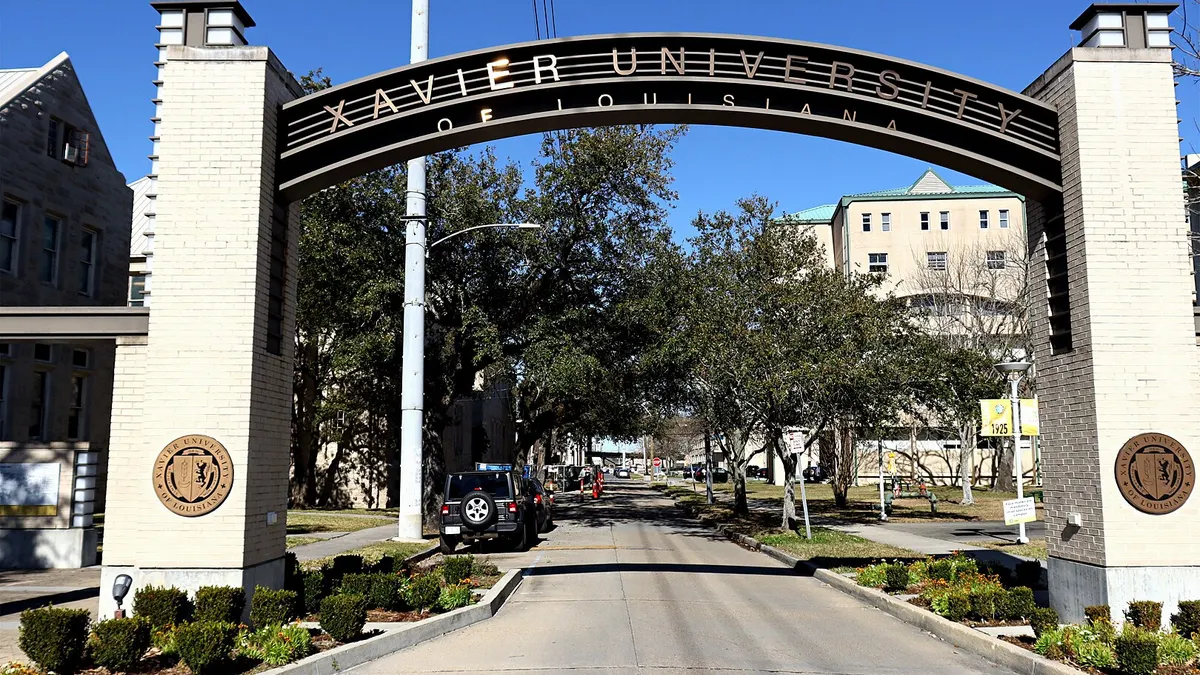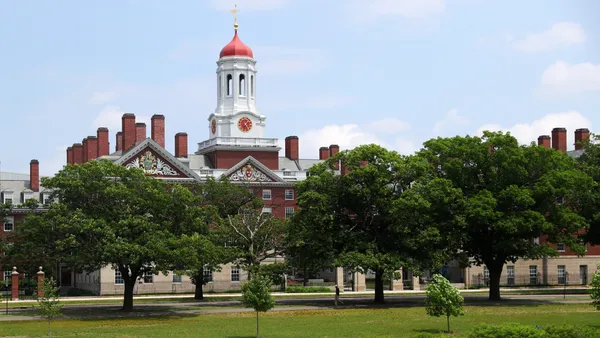Dive Brief:
- Goucher College near Baltimore announced it is cutting some degree programs and its president says while there is "no financial crisis," the private college has to allocate resources to "support as many students as possible," according to Inside Higher Education.
- The well-regarded liberal arts college is phasing out majors and minors in math, music, physics, religion, Russian and elementary and special education and majors in studio art, theater, book studies and German and Judaic studies.
- College President Jose Antonio Bowen said in a memo to the college community that the institution will remain committed to liberal arts and resist "the temptation to adopt more of the vocational programs currently in vogue with segments of the American public." He said the college had "chosen that path carefully and strategically.” He noted that students enrolled in those programs will be able to finish their degrees.
Dive Insight:
While many small colleges are struggling and and some are merging or closing, Bowen maintains that the changes will make Goucher stronger in some disciplines, including math and physics. The college will break ground for lab space for biology, chemistry and environmental science next year. The president said in the arts and special activities may be added because Goucher students gravitate toward those classes but often don't major in them.
Meanwhile, the University of Akron announced last week that it was ending about a fifth of its degree tracks, including undergraduate degrees in art history, French, geography, math and physics, and master’s degrees in history, physics, sociology and Spanish. Earlier this year another public institution, the University of Wisconsin at Stevens Point, also said it was cutting several majors, and 11 small colleges closed last year.
Carthage College President John Swallow recently told Education Dive that in order to succeed, small colleges will have to maintain allegiance to their mission and invest in new programs with "cautious innovation." Rick Staisloff, a former university chief financial officer and finance policy analyst for the Maryland Higher Education Commission, said institutions need to look for new ways to cut costs and find efficiencies without reducing the quality of programs.
Beyond that, "academic prioritization" has been given attention at some colleges, causing some faculty members to complain that rather than fairly examining programs and improving them through that process, administrators are looking to cut those that are least popular and make the least money.












